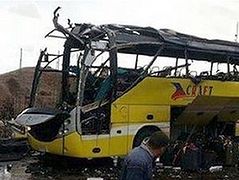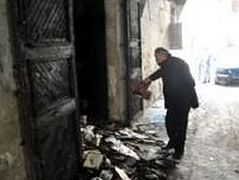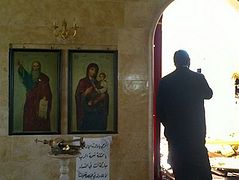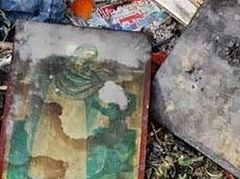Nairobi, Kenya, March 3, 2014
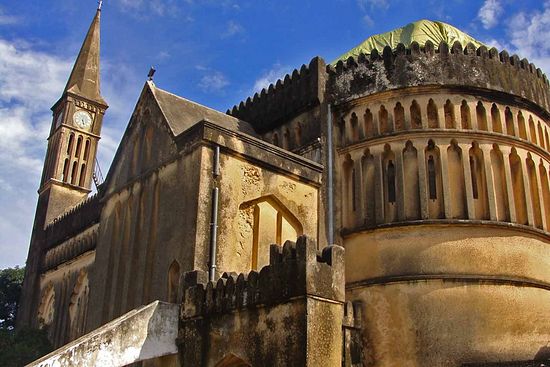
Suspected Islamic extremists bombed three church buildings on Tanzania’s semi-autonomous island of Zanzibar in February, with one of the blasts injuring several Christians, sources said.
A bomb exploded near the door of the Evangelistic Assemblies of God Zanzibar (EAGZ) church building on Feb. 23 in Kijito Upele-Fuoni, outside Zanzibar City, just before the end of the service at about 1:15 p.m., according to area Christian leader Lucian Mgaywa.
The loud explosion shook the building on the island 16 miles (25 kilometers) off the coast of Tanzania, a church member said.
“Several people had minor injuries from broken pieces of bottles and metallic objects,” the member, who requested anonymity, told Morning Star News. “The extent of the injuries has not been established. The members were only complaining of pains and were advised to seek medical attention.”
Police from Fuoni began investigating, and officers from the mainland’s Dar es Salaam arrived and collected the broken metallic and glass pieces. Liquids in some of the bottles turned out to be highly acidic, Mgaywa said.
“The gloves that the policemen wore caught fire, but no one was hurt,” he said.
The next day, Feb. 24, at about 2 p.m., another bomb exploded at the entrance of Christ Church Cathedral, an Anglican church building in the historic city center known as Stone Town. Tourists often visit the site, but no one was near at the time of the explosion. Anglican officials said the bomb, detonated remotely, did no damage to the structure.
Police have arrested one person in connection with the bomb attack; his name was not released at press time.
In the Tomondo area about four kilometers away from Stone Town, a home-made bomb was thrown at the door of a Seventh-day Adventist church on Feb. 15 during a worship service at 11 a.m. Another such bomb landed at the doorway the next day at around noon. There were no reports of injuries.
A church leader reported the incidents at the Mazizini police station in Zanzibar City. Officers found pieces of broken bottles at the site.
“My church members are shaken and afraid that two bomb attacks have taken place,” said the church leader, whose name is withheld. “We need prayers.”
The head of the Zanzibar Pastors’ Fellowship, Fabian Obed, said he was very concerned about the bomb attacks.
“We urged the government to take serious measures at the series of bomb attacks targeting churches here in Zanzibar in the past few days, because worse things will follow soon if nothing is done swiftly,” Obed said.
In the tourist area of Malindi on the Zanzibar seashore, a bomb exploded near the Mercury Restaurant coast on Feb. 24, the same day the Anglican church building was bombed. The explosion, which hit at about 1 p.m. damaged the wall of the building but no injuries were reported.
The separatist group Uamsho or “Awakening,” the Association for Islamic Mobilization and Propagation, has threatened Christians since 2012. An Islamist group fighting for full autonomy of the Zanzibar archipelago from Tanzania, Uamsho arose after Zanzibar’s primary opposition, the Civic United Front, formed a government with the ruling Chama Cha Mapinduzi party in 2010.
On Sept. 13, 2013, suspected Muslim extremists threw acid on the face and chest of a Catholic priest, the Rev. Joseph Anselmo Mwangamba, as he stepped outside an Internet café on the outskirts of Zanzibar City.
Suspected Islamic extremists on Feb. 17, 2013 shot and killed the Rev. Evaristus Mushi, a 56-year-old Roman Catholic priest, in the Mtoni area outside Zanzibar City. On Dec. 25, 2012, suspected Islamic extremists shot the Rev. Ambrose Mkenda, a Roman Catholic priest, through his cheeks and in the shoulder as he arrived home in Tomondo. Members of Uamsho were suspected.
While Tanzania’s population is 34.2 percent Muslim and 54 percent Christian, according to Operation World, the Zanzibar archipelago is more than 97 percent Muslim.
Christian Solidarity Worldwide (CSW) reports that mobs have looted, burned or demolished at least 20 island church buildings. CSW Chief Executive Mervyn Thomas said use of a remote device in the Anglican church bombing suggested “new levels of sophistication and planning.”
“The government of Tanzania must undertake swift investigations in order to ensure that those responsible for these attacks are brought to justice,” he said in a press statement. “It is also vital for the Tanzanian government to uphold freedom of religion or belief for all its citizens, including the Christian minority in Zanzibar, in line with its international obligations under article 18 of the International Covenant on Civil and Political Rights.”

